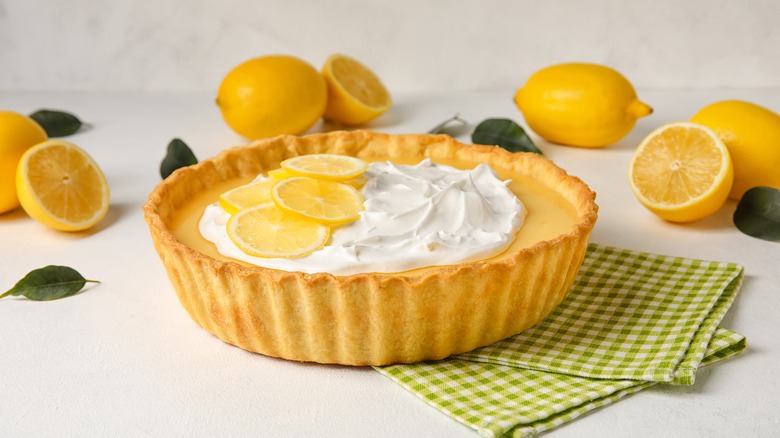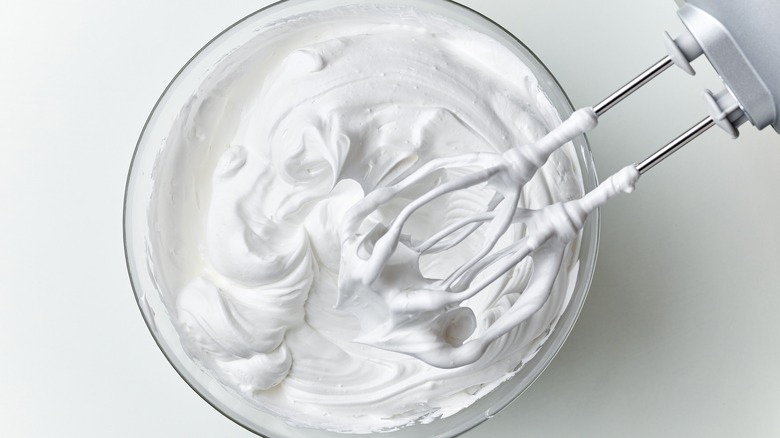The Meringue Mistake You Weren't Aware You Were Making
Melt-in-your-mouth, fluffy, puffy, cloud concoctions. That is any cook's goal for a well-made meringue. Used in desserts of all kinds from cookies, to cakes, to souffles, mastering meringue will take you far in the kitchen and in the hearts of anyone who eats it.
The miracle of meringue is that it's made with only two ingredients, sugar and egg whites, and French meringue is the simplest of all, combining sugar and whipped egg whites together. Meanwhile, Swiss meringue requires mixing the two over low heat and Italian meringue gets its silky smooth texture from adding warm sugar syrup while mixing (via MasterClass).
While these all differ slightly in approach, they each get their impressive volume and texture from the same techniques. In fact, meringue requires very specific and careful preparation. Meringue is held together by the proteins in egg whites (via Spruce Eats) and when sugar is combined with the egg whites, it interacts with the proteins creating stability, which allows you to pipe it into that perfect swirl.
So what can go wrong?
Egg whites need a clean bowl
Egg whites are particular; They only like to share the bowl with sugar. If the slightest bit of water, say from a bowl that isn't dry enough, gets in, it will add too much moisture to the whites, preventing them from whipping up properly. Or, if the smallest bit of fat from the egg yolk or oil residue from previous baking experiments gets into the whites, they cannot foam properly (via Taste of Home). One great trick is to separate the eggs into a different bowl and then add each white one at a time into your mixing bowl. This way, if some yolk does slip in there, you only need to discard one egg white instead of the whole batch, says Martha Stewart. Some cooks recommend wiping the mixing bowl clean with a little white vinegar. This is a two-fold trick in that it removes any oil residue, but also coats the bowl with a bit of acid, which is a stabilizer (via Queen).
There are a few excellent forms of acid that can be added to egg whites to help them stabilize, which is important for holding up during baking. The vinegar, as mentioned above, adds just a tad as it lines the bowl. But, an eighth of a teaspoon of cream of tartar or a half teaspoon of lemon juice will ensure a stable and strong meringue (via MasterClass). The lemon juice is nice if you'd like to add a little flavor to the meringue too.
Either way, make no mistake, delectable meringues are worth the particular methods they require.

